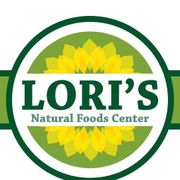
Magnesium is an essential nutrient that helps regulate many body processes such as muscle, bone, and nerve health. However, many people do not get enough of this vital mineral. Low magnesium levels are associated with serious health issues such as diabetes, cardiovascular diseases, and anxiety. Keep reading to learn more about this important nutrient and how certain foods and supplements can help increase your magnesium intake.
The Importance of Magnesium
The human body needs a healthy level of magnesium to properly perform many functions, including protein synthesis, blood glucose control, and regulating blood pressure. Along with vitamin D and calcium, magnesium is essential for maintaining strong bone density. It also has an important role in building healthy muscles, including the heart. People suffering from a magnesium deficiency may be at higher risk for cardiovascular problems, hypertension, and stroke.
Low magnesium levels can affect neurotransmitters and blood vessel constriction in the brain, which could cause migraine headaches. A lack of this important nutrient has been linked to changes in the adrenal glands which regulate a person's reaction to stress and may lead to mood disorders such as depression and anxiety.

Consuming alcohol, taking certain medications, and some health conditions such as gastrointestinal disorders can lower the body's magnesium levels. Symptoms of low magnesium include a loss of appetite, nausea, fatigue, and muscle cramps. However, otherwise healthy people rarely experience any symptoms.
How to Increase Your Magnesium Intake
Many foods, including nuts, dark green vegetables, whole grains, and legumes are high in magnesium. To up your daily dose of this essential mineral, try incorporating almonds, peanuts, and cashews into your snacking routine. Consider oatmeal, a banana, and soy milk for a high magnesium breakfast.
Salads containing spinach and avocados can also be a tasty and healthy source of magnesium. Supplements can complement a balanced diet and help maintain healthy magnesium levels. However, taking too much magnesium can lead to gastrointestinal problems such as diarrhea, nausea, and cramping.
Always follow the dosing instructions on the supplement package. If you take medication or have a kidney disorder, check with your doctor before starting a magnesium supplement regimen to avoid drug interactions or other complications.
To add magnesium-rich, healthy, and tasty foods to your diet, visit Lori's Natural Foods Center in Rochester, NY. This family-owned business offers GMO-free, organic, high-quality foods and natural supplements to meet all of your nutritional needs. They also feature many gluten-free, dairy-free, vegetarian, vegan, and raw-vegan options. Call them today at (585) 424-2323 or visit them online to learn more.
About the Business
(511 reviews)
Have a question? Ask the experts!
Send your question

